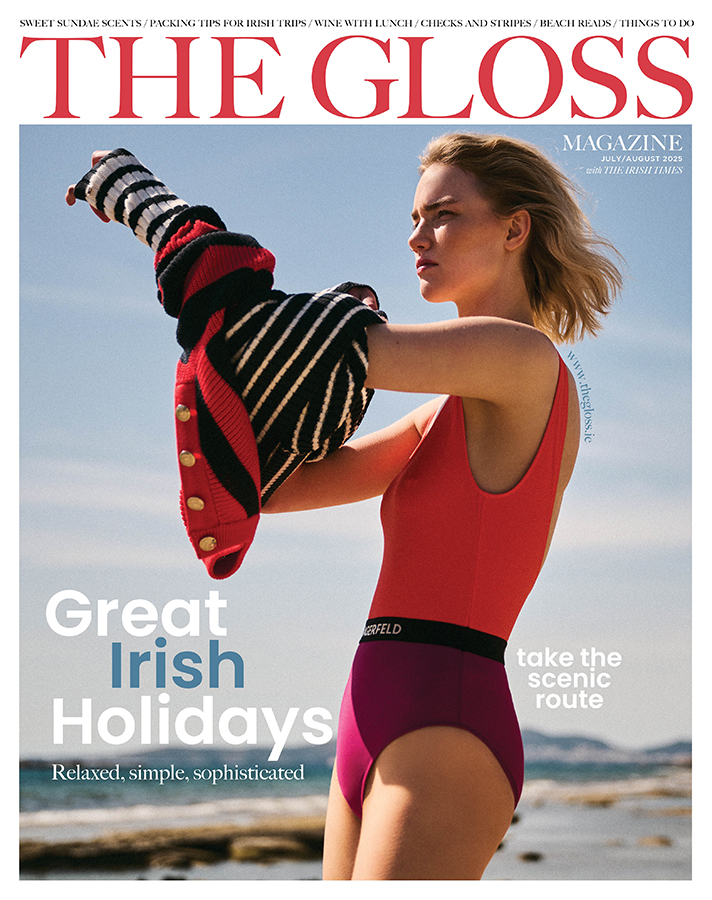The extremely successful writer and founder of @read_women JOANNA WALSH talks gentrification, the art that inspires her and and the INCREDIBLY POWERFUL campaign that garnered her attention from THE NEW YORK TIMES with SOPHIE GRENHAM …

Literary grandee Deborah Levy has heralded rising talent Joanna Walsh as “fast becoming one of our most important writers,” a compliment that comes as no surprise, given her track record.
Joanna has produced a body of exceptional fiction, starting with Fractals (3:AM Press, 2013), Grow A Pair (Readux Books) and the dazzling Hotel (Bloomsbury), both released last year. Hot on their heels is her highly anticipated new novel Vertigo (Tramp Press/And Other Stories).
Joanna’s writing has been published by Granta, The Dalkey Archive, Salt, Gorse Journal, and The Stinging Fly. She is the fiction editor at 3:AM Magazine and a contributing editor at Catapult.co, as well as a judge for this year’s Goldsmiths Prize.
Joanna is also known for her successful career in the field of illustration. Her work has appeared worldwide in publications such as The Economist, The New York Times and numerous Penguin Books titles. She has also created art for The Tate Modern and The Wellcome Institute.
In 2014 Joanna started the @read_women campaign, for which she won Women In Publishing’s New Venture Award that year, and what The New York Times called “a rallying cry for the equal treatment of women writers.”
On home
I’m based in East Oxford in the UK, which used to be a bit scuzzy when I moved there, but has ‘gentrified’ a lot. I live a few doors down from a lovely pub whose food is so good it was reviewed in the UK national newspapers. I remember someone left a comment beneath one of the reviews that said something like, I know you might go there now for a fancy pie, but I remember when you went there for a punch in the face.
The Cowley Road remains a mixed environment, where pawn shops (and porn shops) rub shoulders with organic delis. I like Quarterhorse for good coffee and a mixtape that could make you believe you were in the 1990s, but with better laptops.
On creating
I have a study in my attic. There’s no heating. I have some bookshelves and a yellow ‘Boby Trolley’ for storage, which was created in the 1960s for graphic designers (I found it in the street). I write either at a drawing table left over from the time I used mainly to work as an illustrator, which is big, and strewn with mess, or at an antique card table, a bit broken-down, barely bigger than my laptop, which means no physical distractions. I do a lot of writing in bed too.
When I need to get out, I work in a coffee shop, or more frequently in the Bodleian Library, which has to be the greatest luxury, and always makes me feel like I’m doing something proper.
On bookshops
I like the Albion Beatnik in Oxford, which has more eclectic selection than the bigger bookstores. In London, I love the London Review Bookshop, and its excellent cafe, Foyles, and the Review Bookshop in Peckham. I’d like to visit new independent, Libreria, which apparently has a whisky bar… In Dublin, I like Chapters, and Books Upstairs.
On the works of art and literature that made an impact
I’m not sure I should equivocate ‘impact on your life’ with ‘impact on your writing’ but I can’t help it, because the writers I love most are those who show me that life can be lived differently, because it can be told differently. I’m shy about listing writers who are important to me: so many are the same mixed bag as everyone else, though maybe different bits and for different reasons. Writers I really like include Lispector, Brooke-Rose, Duras, Beckett, Rhys, Perec, some Heidegger, Freud, Donne, some Kafka, contemporaries Chris Kraus, Elfriede Jelinek, Dubravka Ugresic, Anne Carson, Anne Boyer, Marie NDiaye, Claire-Louise Bennett…
The piece of art that has perhaps made the greatest impact on my life is one that I feel I can be highly critical of, and which is the basis of something (fictional) I’m writing at the moment: Millais’ Ophelia. I can’t go into all my thoughts about it: that would be a book, or rather, it will be…
On escapes
I’m very bad at relaxing. I walk my dog in the local nature reserve by the river, called The Kidneys, where I occasionally see muntjac deer running wild in the middle of the city. But as soon as I’m walking, I start thinking, then I have to get my phone or a notebook out to make a note of something I want to save for writing…
On @read_women
I never meant to start a campaign. I drew some bookmarks featuring the faces and names of women writers, and it went from there. It’s clear from statistics that women still have difficulties having their voices heard in certain areas of writing, particularly in theatre, screenwriting, and in translation (just over 70% of contemporary fiction in translation is—mysteriously—the work of men, and I’m currently working with a group of translators toward founding a prize for women’s writing in translation), not to mention the more nebulous negative experiences women writers complain of, such as being evaluated by their appearance, not being invited to contribute to certain journals or panels, or simply feeling ignored in a room. These are more difficult to define, and to fix, but I hope that the little extra ‘visibility’ provided by @read_women is a tiny supportive factor.
Vertigo (€10.00) is available now from all good bookshops.
Image by Wayne Thomas
Sophie Grenham
Love THEGLOSS.ie? Sign up to our MAILING LIST now for a roundup of the latest fashion, beauty, interiors and entertaining news from THE GLOSS MAGAZINE’s daily dispatches.





